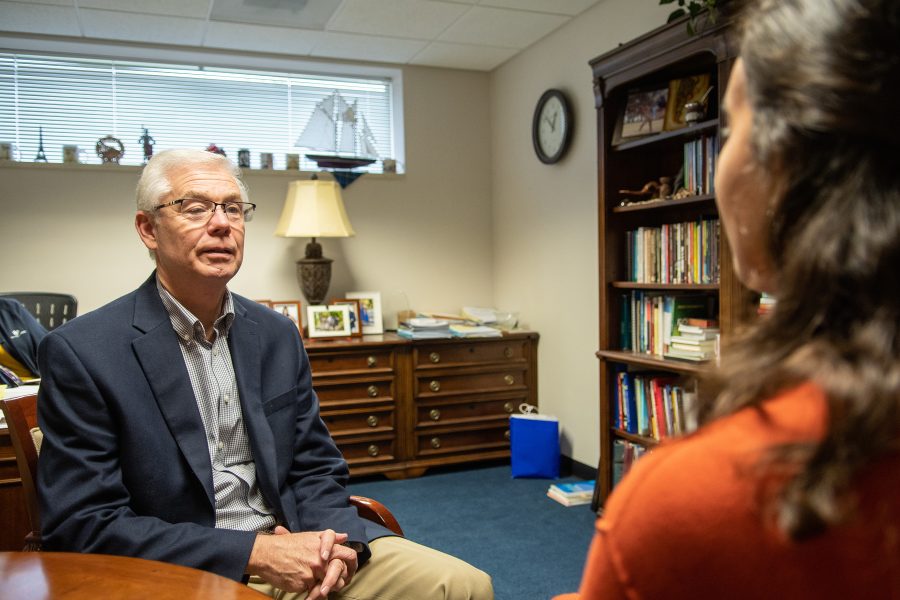“Teaching is the profession that teaches all other professions.” This statement was made by Dr. Brian Carruthers, dean of the School of Education, in his promotional video for the Teachers for Tomorrow program.
According to Mrs. Ann Carruthers, who helped her husband develop and is now coordinator for Teachers for Tomorrow, the program was designed to partner with Christian high schools to get students interested in teaching as a profession.
Dr. Jeremy Watts, division chair for teacher education, said the United States is in what is nationally referred to as a “national crisis—a teacher shortage.”
This shortage of teachers has been a primary instigator for Dr. Carruthers’ idea to create the Teachers for Tomorrow program, which, much like the Teacher Cadet program in public schools, proactively encourages young people to teach or to consider teaching as a potential field of interest.
Dr. Carruthers said 54 students in various schools across the U.S. are participating in the pilot version of the course. He believes the course offers its participants practical knowledge. He said the content presents many different aspects of being a teacher and that it offers experiential knowledge by giving students the opportunity to work alongside and observe teachers in their classrooms.
The program is 30 weeks long—two semesters of 15 weeks—and is available as an online course in Canvas for elective high school credit in grades 11 and 12. Students who take the course also have an option to count the course as dual credit, replacing the three-credit BJU course, Introduction to Education.
The Teachers for Tomorrow program is a free offering to any Christian schools with students interested in participating. Online videos of teaching sessions combine with practical homework to introduce high schoolers to the main concepts of education.
The course has a total of 30 teachers, half of whom teach at BJU, BJA, or work at the press. The other half are teachers from across the U.S. and several other places around the world such as Guam, some of whom are BJU grads and some who are not. In each teacher’s week of the course, one of the videos includes them sharing their personal stories of why they became teachers.
According to Mrs. Carruthers, the students participate in a weekly activity, discussion and quiz related to the material they are learning. They are also asked to spend two to four hours in a school classroom every week.
Both Dr. and Mrs. Carruthers are pleased with how the pilot is going, and they hope to have an even better product next year that will be open to all upper-class high school students who attend Christian high schools in the U.S., international Christian schools, and homeschools.
For Mrs. Carruthers, the most integral part of the program is the mentor teacher, the person in the student’s school who partners with the students, navigating them through the course and its work. According to Dr. Watts, this program is the spark to what will hopefully grow into a blaze of high schoolers who are interested in the field of education.
Watts said there are many reasons for the current teacher shortage, the first being that it is a very demanding field in that it is emotionally challenging.
Second, the struggles perceived in the educational field dissuade some students from pursuing education. The problem is not generally with salary but with the media’s slanted portrayal of education. For example, recent school shootings and their frequent presence in the media may taint people’s perceptions of the field, while schools are still some of the safest public places to be.
Dr. Carruthers’ desire is to light a fire in the hearts of high school students to choose teaching as a profession and to hopefully give BJU’s education department an opportunity to train them.






















































